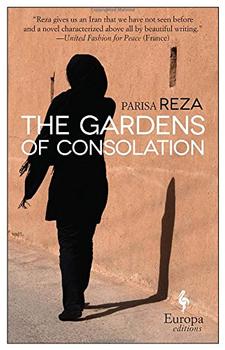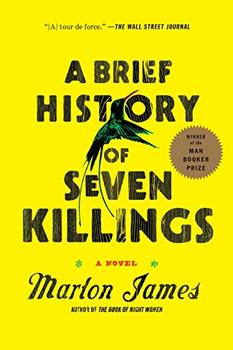Summary | Excerpt | Reviews | Beyond the book | Read-Alikes | Genres & Themes | Author Bio

Few writers are as intricately linked with place as the Nobel Laureate Orhan Pamuk is with Istanbul, the dynamic Turkish metropolis that straddles both Asia and Europe. In his unforgettable memoir, Istanbul: Memories and the City, Pamuk delivered a spectacular tour of history and the tidal forces of change that were slowly chiseling away at his beloved city during his childhood from the 1950s through the '70s. While Pamuk's novels since then explore specific aspects of Turkish culture and history (Snow, for example ties itself with the rising strains of Islamic fundamentalism in the country, while My Name is Red weaves Ottoman empire intrigue into its byzantine plot), A Strangeness In My Mind perhaps most closely mirrors his memoir both in its gentle and melancholic tone and in its content — an homage to a city that struggles to maintain its very definition of self while battling the suffocating global forces of homogenization.
The sprawling, yet impressively tightly knit epic uses as its focal point a Turkish everyman named Mevlut Karatas who migrates to the big city from the village of Gümüsdere in 1969 — shortly after his father Mustafa Karatas and uncle Hasan and Hasan's two sons, Korkut and Süleyman, settle in the city. The two elder Karatas brothers and their families start out in Istanbul under one roof but discord soon fractures them apart, leading Uncle Hasan and his two sons to move to Duttepe, a new and upcoming neighborhood on the hill opposite Kultepe, where Mevlut and his father continue to live.
Mevlut goes to school half-heartedly, but his heart really belongs to the streets. His life's daily doses of joy are when he accompanies his father by foot on his rounds selling yogurt and boza to the city residents. As societal mores change, Mevlut finds that boza, a "traditional Asian beverage made of fermented wheat, with a thick consistency, a pleasant aroma, a dark yellowish color, and a low alcohol content," faces stiff competition from real alcoholic drinks, and that most buy boza only as a nostalgic nod to the past.
Over the course of the more than four decades this novel tracks, Mevlut remains a charming and good-natured protagonist, taking things in stride even as social customs and a set of misplaced coincidences conspire to ensure that his marriage is first built on compromise and only later, love. Mevlut and his cousin Korkut end up being married to two sisters from their village, while the third sister makes bold relationship moves of her own. A series of characters — major and minor — flit in and out of this panorama, each lending a different perspective to the vari-colored kaleidoscope. Novels narrated through multiple points of view are tricky to execute because it's difficult to keep each character distinct even if growth occurs slowly over the course of the story. Yet Pamuk pulls this off practically effortlessly, the many voices melding together harmoniously, a panoply of perspectives that together forms one glorious Impressionist painting.
The end of the novel includes a calendar listing of incidents that serves to emphasize just how much history has shaped the lives of Mevlut and his family. The Turkish army's invasion of Cyprus in 1974 (see Beyond the Book) to the devastating earthquake of 1999 that killed upwards of 17,000 people are among the many historical events that expertly punctuate the story.
Pamuk uses Mevlut's daily peregrinations through Istanbul's quaint neighborhoods to narrate the many slow but irreversible changes besieging the metropolis. Mevlut starts out as a stranger to the city, constantly fearing the vicious street dogs in the neighborhood. These feral creatures serve as metaphor for Mevlut's innermost fears — he is convinced the animals can sniff out his foreignness and his insecurities. "Walking around the city at night made him feel as if he were wandering around inside his own head," Pamuk writes. Even as Mevlut loves old things: "the feeling of walking into one of those cemeteries he discovered while selling boza in distant neighborhoods, the sight of a mosque wall covered in moss, and the unintelligible Ottoman writing on a broken fountain with its brass taps long dried up," he knows the march of "progress" is relentless and unforgiving:
"It was as if the city's old, mossy walls, its ancient fountains covered in beautiful script, and its wooden homes, twisting and rotting to the point of leaning on one another for support, had all been burned down and wrecked into nothingness, and the new streets, concrete houses, neon-lit shops, and apartment blocks taking their place had been built to seem even older, more intimidating and incomprehensible, than any place before. The city was no longer an enormous, familiar home but a faithless space in which anyone who got the chance added more concrete, more streets, courtyards, walls, pavements, and shops."
This metaphor for a "faithless space" — and its attendant note of melancholy — extends to Mevlut's own life as he moves into middle age besieged by worries of impending death. Despite being loved by many: "a fear that he may have wasted his life—which he'd never felt in his youth—had begun to gnaw at his soul, despite all the years still ahead of him."
This is not to say that Strangeness is a depressing novel. By any stretch of the imagination it is not. A Strangeness In My Mind brilliantly illuminates the difference between happiness and contentment — for between these states of mind lies an entirely different mindset and attitude toward life that can make or break a man. And Mevlut, just like his beloved Istanbul, is nothing if not resilient — he knows how to take change squarely in the jaw and yet retain his essential indomitable spirit.
![]() This review was originally published in The BookBrowse Review in November 2015, and has been updated for the
October 2016 edition.
Click here to go to this issue.
This review was originally published in The BookBrowse Review in November 2015, and has been updated for the
October 2016 edition.
Click here to go to this issue.

If you liked A Strangeness in My Mind, try these:

by Parisa Reza
Published 2016
Against the backdrop of a rapidly changing Iran, Parisa Reza has written a powerful love story filled with scenes of hope and heartbreak.

A Brief History of Seven Killings
by Marlon Jones
Published 2015
Winner of the 2015 Man Booker Prize. Brilliantly inventive and stunningly ambitious, this novel is a revealing modern epic spanning Kingston in the '70s, the crack wars in '80s New York, and a radically altered Jamaica in the '90s.
Your guide toexceptional books
BookBrowse seeks out and recommends the best in contemporary fiction and nonfiction—books that not only engage and entertain but also deepen our understanding of ourselves and the world around us.